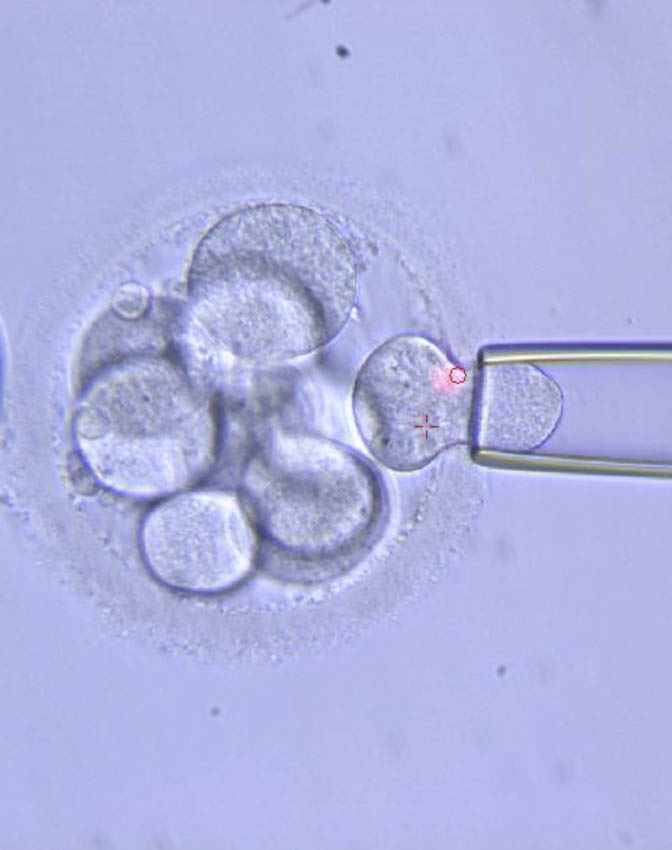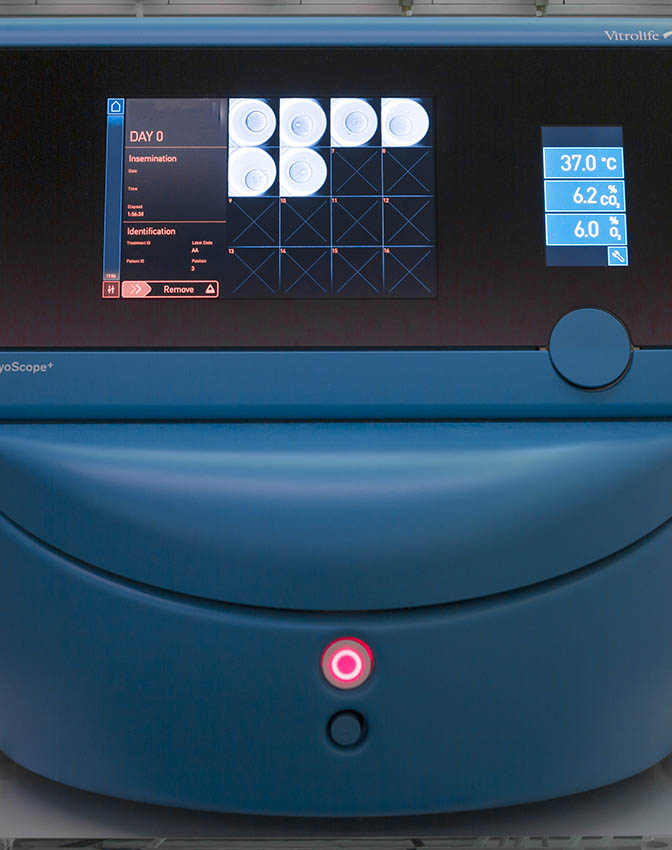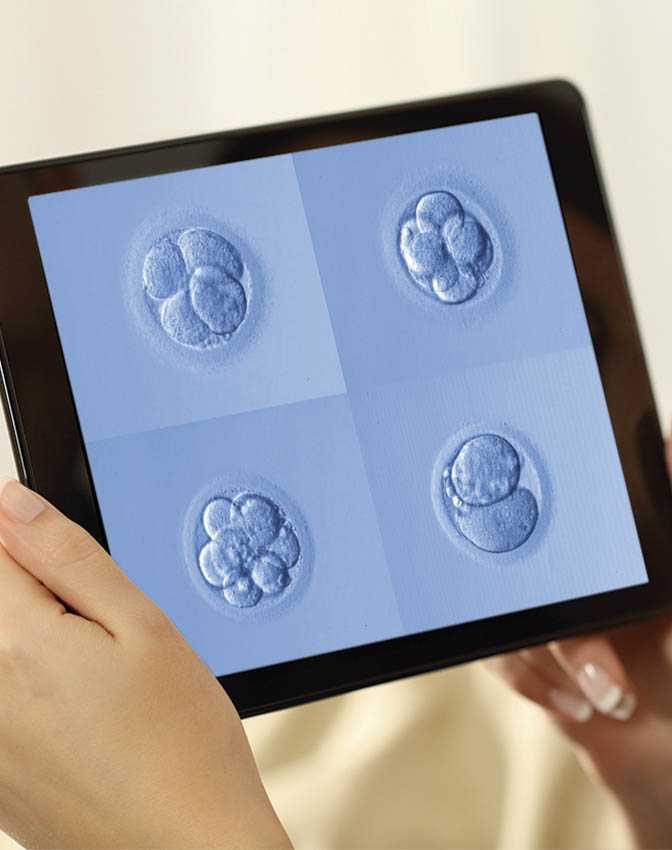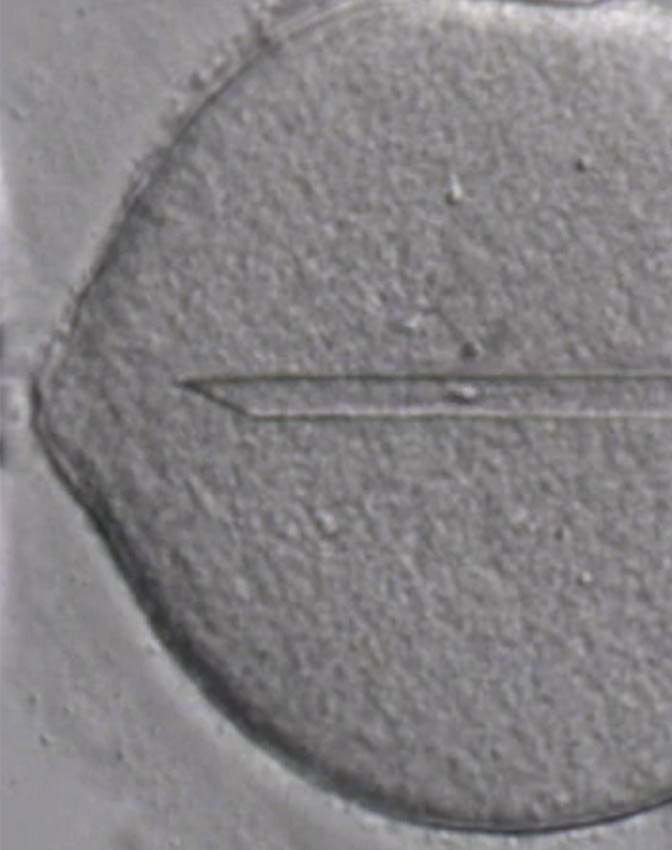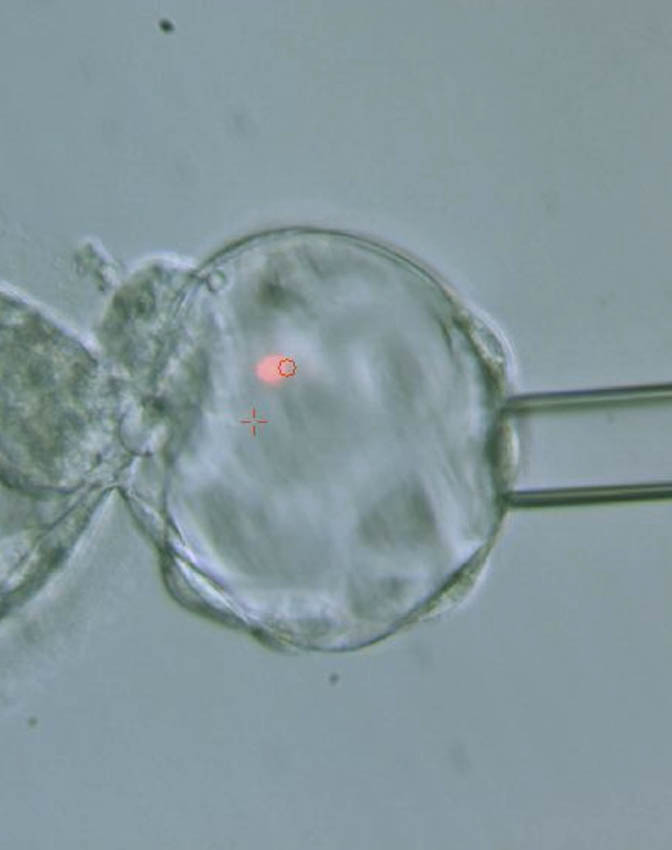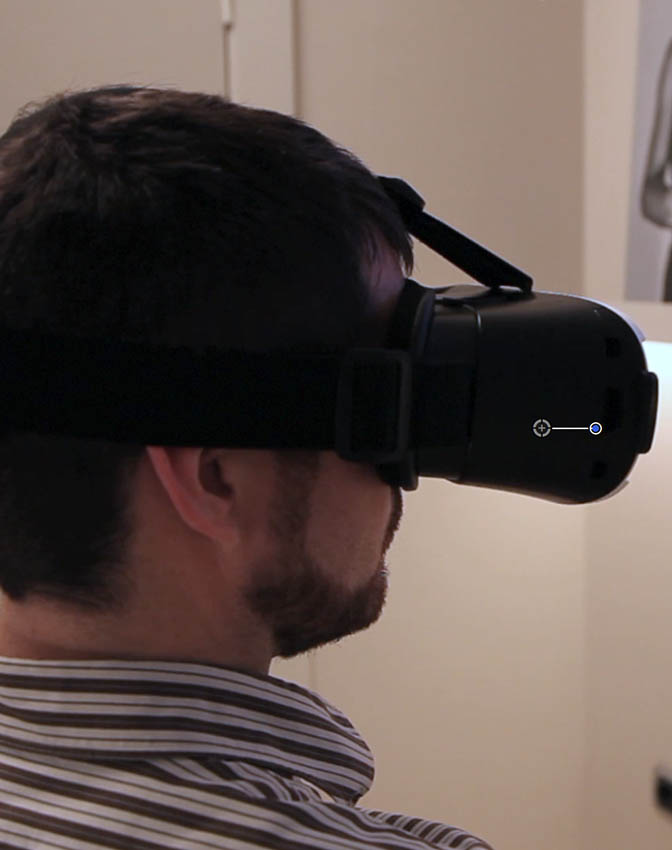Preimplantation Genetic Testing - PGT
What is Preimplantation Genetic Testing?
Preimplantation Genetic Testing (PGT) is the technique that was formerly known as Preimplantation Genetic Diagnosis (PGD). It involves the biopsy or extraction of one or several cells from embryos obtained after In Vitro Fertilisation to analyse their genetic or chromosomal content. In this way, only those embryos with no anomalies and a higher chance of implanting are transferred to the maternal uterus. It also allows for the transfer of healthy embryos in couples with certain hereditary diseases.
Contents
When is PGT recommended?
Preimplantation Genetic Testing is especially recommended for three groups of patients:
- Patients with infertility problems (PGT-A) caused by a maternal age over 37 years, repeated miscarriages, repeated unsuccessful In Vitro Fertilisation cycles or due to a male factor.
- Patients with an altered karyotype (PGT-SR).
- Patients with genetic diseases (PGT-M) who want to have children and avoid the birth of an affected child.
By analysing the 23 pairs of chromosomes of the embryo instead of 9, it is possible to detect more anomalies and improve the chances of pregnancy.
Three basic types of PGT can be performed:
- PGT for aneuploidy study. In cases of infertility, this type of analysis is often performed on embryos. The chromosomal endowment of the embryo is studied, that is, the number of chromosomes it has. This allows the selection of only those embryos with the correct number of chromosomes. This is recommended when:
- The woman is over 38 years old: advanced maternal age.
- The couple has had 2 or more miscarriages: repeated miscarriages.
- Chromosomal abnormalities in sperm: FISH in sperm.
- Alterations in the male meiosis process: study of altered meiosis.
- Two or more IVF cycles performed without pregnancy: implantation failures.
- PGT for the study of chromosomal abnormalities. This is performed when one of the members of the couple carries a chromosomal abnormality in the karyotype (for example, translocation, inversion, etc.). In these cases, the embryos are analysed to select those that are healthy or balanced for the chromosomal abnormality studied.
- PGT for the study of monogenic hereditary diseases.This is carried out when one of the members of the couple carries a monogenic hereditary disease (for example, cystic fibrosis, muscular dystrophy, etc.).
- In Vitro Fertilisation to obtain the embryos.
- Embryo biopsy. The biopsy can be carried out during the third day of embryo development or between the fifth and sixth day when it has reached the blastocyst stage. It consists of extracting a cell from the embryo without compromising its normal development. Once the biopsy has been performed, the embryo is returned to the laboratory incubator, where it will be kept in In Vitro culture under appropriate environmental conditions to continue developing until the moment of transfer to the patient’s uterus.
- Genetic test analysis. The cell obtained from the biopsy is processed for analysis and subjected to a genetic study.
- Embryo transfer. The result of the genetic analysis is transmitted to the Assisted Reproduction team in a detailed report and a decision is made as to which embryos are going to be transferred based on the chromosomal endowment and the morphological characteristics of embryonic viability. If the biopsy is carried out on the third day of development, the embryo transfer to the maternal uterus can be performed immediately after the analysis, which is generally 5 days after the recovery of the eggs. In cases where the biopsy is carried out between the fifth and sixth day of development, it will be necessary to freeze the embryos and schedule the transfer for later.
At the time the biopsy is performed, each cell of the embryo contains all the genetic information and the extraction of one cell does not affect the correct development of the rest of the embryo’s cells.
This technique requires great precision and, when performed by experts, does not alter the evolution of the embryo. The risk of embryonic blockage is 0.67 %.
Success Rates of IVF with Genetic Analysis (PGT)
- Average pregnancy rate per In Vitro Fertilization cycle
Twin Pregnancy 2.4%
At Institut Marquès, PGT is performed in all our centers using the Next Generation Sequencing (NGS) technique, analyzing all the chromosomes of the embryo. This is the most innovative method currently applied in the genetic diagnosis of embryos. When the PGT is performed in the blastocyst stage, freezing of the embryo is inevitable while waiting for the results of the test, which usually takes 15 days. If the PGT is carried out on the third day of evolution, the diagnosis is ready when the embryo reaches a blastocyst and freezing is not necessary. Institut Marquès has shown that the results of Preimplantation Genetic Diagnosis are equally effective regardless of the day on which the biopsy is performed.
The genetic study of embryos will be key in the future of Assisted Reproduction. New techniques are still in the development phase, such as the Non-Invasive Preimplantation Genetic Test, a procedure that has not yet achieved reliable results.
FAQs Preimplantation Genetic Testing (PGT)
The cost of PGT is additional to IVF treatment and varies according to the clinic and the type of test performed (PGT-A, PGT-M, PGT-SR). In general, the cost can range from 2,000 to 5,000 euros, depending on the number of embryos tested and the complexity of the genetic analysis.
PGT results are usually available 7-14 days after the biopsy. This allows specialists to determine which embryos are genetically normal and can be transferred to the uterus in a subsequent IVF cycle.
The number of embryos to be tested depends on the number of embryos available and the couple’s preference. It is common to test all available embryos to select those that are genetically normal.
If all embryos tested have genetic abnormalities, the physician and couple should discuss the options available, which may include performing a new IVF cycle, considering egg or sperm donation, or exploring other reproductive alternatives.
PGT increases the chances of success in an IVF cycle by allowing the transfer of genetically normal embryos. Although it does not guarantee pregnancy, it improves implantation rates and reduces the risk of miscarriage. The specific odds depend on the quality of the embryos and other individual factors.
PGT is not necessary in all IVF cycles, but may be recommended for couples with a high risk of genetic abnormalities, a history of recurrent miscarriage, or repeated IVF failures. The decision to perform PGT should be made in consultation with a fertility specialist.
If the PGT results are inconclusive, one may choose to repeat the genetic test in another cycle, transfer the embryo with caution, or explore other reproductive options. It is important to discuss all options with your doctor before making a decision.
Other Complementary Techniques
Increase your chances of pregnancy even more with the most appropriate complementary techniques for your treatment.

